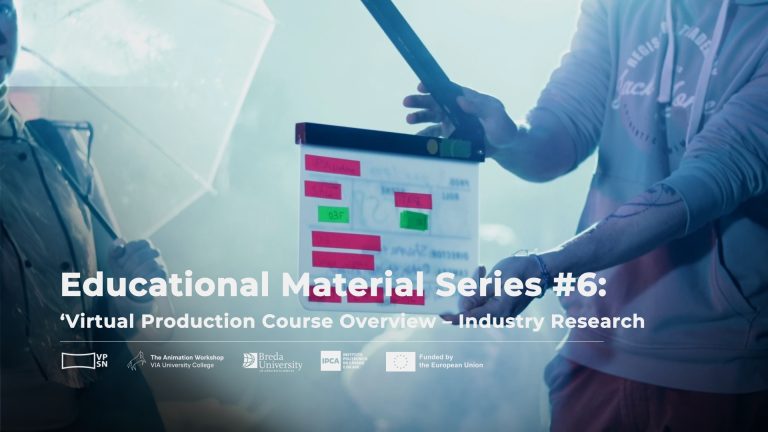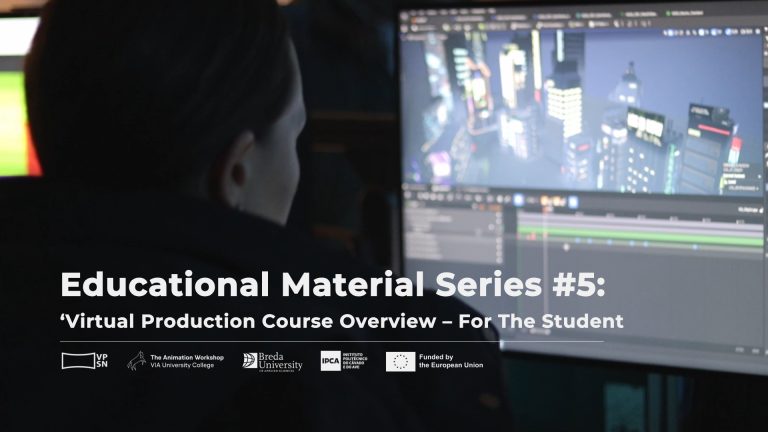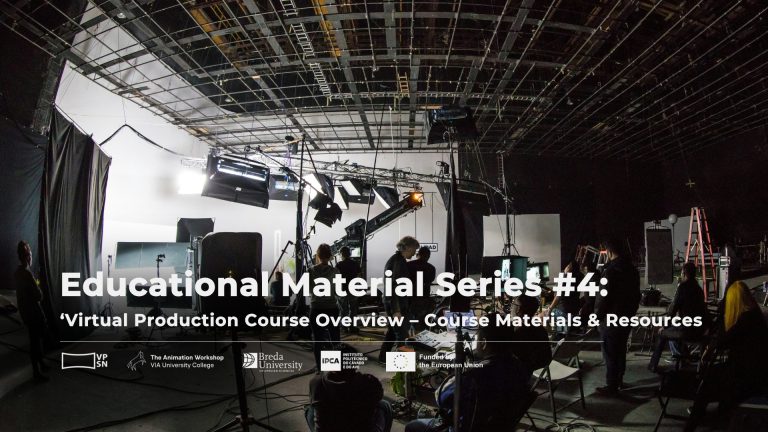Understanding the Learning Objectives of the Virtual Production Studio Network Course
Welcome to the third article in our web series on the Virtual Production Studio Network (VPSN) course overview and teaching material spotlight!
In this article, we’ll dive into the learning objectives of the course. These objectives are designed to equip students with the skills and knowledge needed to excel in the rapidly evolving field of filmmaking through real-time tech.
Why Learning Objectives Matter
Learning objectives are crucial to any educational development and curriculum as they provide a clear roadmap for what students are expected to achieve by the end of a course. They help in setting expectations, guiding the learning process, and assessing student progress.
For educators, these objectives framed through the VPSN course overview offer a framework for designing course content and activities that align with industry standards and requirements.
Key Learning Objectives of the VPSN Course
The VPSN course material is structured around several key learning objectives, each aimed at developing specific skills and competencies in virtual production. Here are the primary objectives categorized by the stages of production:
Introduction
Why is this stage important? The introduction stage sets the foundation for the entire course. It familiarizes students with the basic concepts and history of virtual production, helping them understand the differences between traditional and virtual production methods.
Learning Objectives: During the introduction, students will compare green screen shoots with LED volume virtual production shoots, identify elements of a virtual production studio, analyze the history of virtual production, present findings on future innovations, and recall learning goals and assessments. These objectives ensure that students have a solid understanding of the fundamentals of virtual production.
Pre-production
Why is this stage important? Pre-production is crucial as it involves planning and preparation, which are essential for a successful virtual production. This stage helps students develop technical skills and understand the workflow of virtual production.
Learning Objectives: In pre-production, students will define key terms related to Unreal Engine, experiment with creating scenes, evaluate the use of Unreal Engine, set up camera tracking systems, analyze the importance of camera tracking, apply knowledge to modify virtual production scenes, and understand new roles in virtual production. These objectives focus on building a strong technical foundation and preparing students for the practical aspects of virtual production.
Testing
Why is this stage important? Testing allows students to apply their knowledge and skills in a controlled environment. It helps them identify and resolve issues before the actual production, ensuring a smoother workflow during filming.
Learning Objectives: During the testing stage, students will independently test their short film shots in the XR Stage/LED volume. This stage emphasizes hands-on experience and troubleshooting, which are critical for mastering virtual production techniques.
Reflection
Why is this stage important? Reflection is essential for continuous improvement. It encourages students to review their work, identify areas for improvement, and adapt their approaches based on feedback.
Learning Objectives: In the reflection stage, students will review their testing results, make necessary changes, and document their learning progress. This stage promotes self-assessment and the ability to adapt, which are vital for professional growth.
Shooting
Why is this stage important? Shooting is the core of the production process. It involves capturing the planned scenes and requires students to apply all their learned skills in a real-world setting.
Learning Objectives: During the shooting stage, students will independently film their short film shots in the XR Stage/LED volume. This stage focuses on practical application and the ability to work efficiently in a virtual production environment.
Post-Production
Why is this stage important? Post-production involves editing and finalizing the film. It is crucial for ensuring the quality and coherence of the final product.
Learning Objectives: In post-production, students will independently edit their short film shots in the XR Stage/LED volume. This stage emphasizes the importance of editing skills and the ability to produce a polished final product.
Why Educators Should Consider These Objectives
For educators, integrating these learning objectives into their teachings or curriculum can benefit them through:
- Alignment with Industry Standards: The objectives are designed to meet the current demands of the media industry, ensuring that students are well-prepared for their careers.
- Comprehensive Skill Development: The course covers a wide range of skills, from technical proficiency to creative problem-solving, making it a well-rounded educational experience.
- Adaptability: The focus on reflection and adaptation encourages students to be flexible and responsive to new challenges, a valuable trait in any professional setting.
Wrapping up ‘#3: Learning Objectives’
We invite both students and educators to explore the full course materials available here on the VPSN website. These resources provide comprehensive support for teaching and learning virtual production, helping to prepare the next generation of media professionals. The course includes detailed activities and practical examples that enhance the learning experience.
The learning objectives of the VPSN course are designed to equip students with the skills and knowledge needed to excel in virtual production. By understanding and achieving these objectives, students can enhance their career prospects and stay ahead in a rapidly evolving industry. Educators, on the other hand, can ensure that their teaching aligns with industry standards and prepares students for real-world challenges. Dive deeper into the course materials and discover the full potential of virtual production today!
About VPSN
The VPSN project is an Erasmus+ initiative, collaboratively developed by three partners: The Animation Workshop/VIA University College, Breda University of Applied Sciences, and the Polytechnic Institute of Cávado and Ave. This partnership aims to create educational materials and frameworks for other educators and students, leveraging Breda University’s extensive experience in virtual production. By sharing this knowledge, the VPSN project seeks to support the European industry and educational field, particularly those interested in virtual production as an emergent technology.



